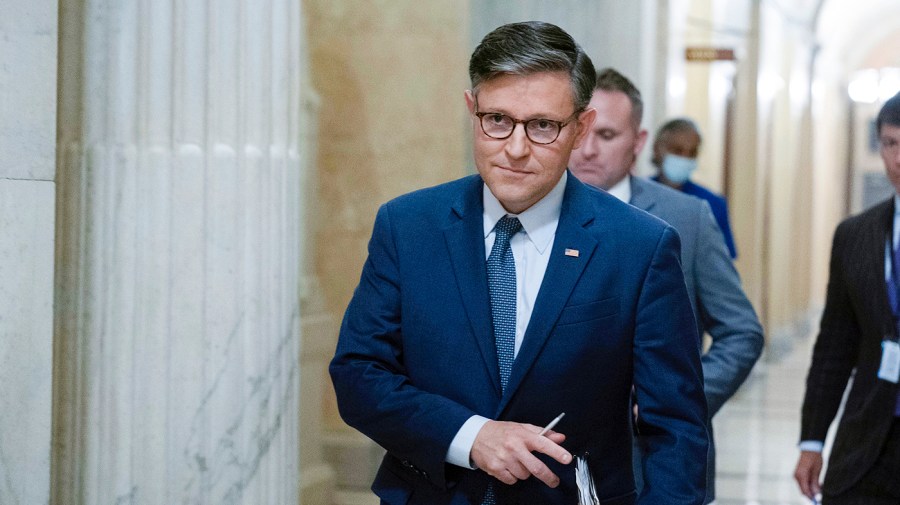Speaker Mike Johnson (R-La.) is eyeing a Wednesday vote on his partisan stopgap proposal, he announced on Tuesday, after he was forced to yank it from the floor amid widespread GOP opposition last week.
The move is risky: Johnson faced mounting resistance to the plan — which pairs a six-month continuing resolution with a Trump-backed bill requiring proof of citizenship to vote — last week, and it is unclear if those critics have changed their stance.
Hardline conservatives were opposed to the use of a stopgap, defense hawks were concerned about the impact the six-month measure would have at the Pentagon, and moderates were worried about the threat of a shutdown so close to the election.
“Congress has an immediate obligation to do two things: responsibly fund the federal government, and ensure the security of our elections. Because we owe this to our constituents, we will move forward on Wednesday with a vote on the 6-month CR with the SAVE Act attached,” Johnson said in a statement.
“I urge all of my colleagues to do what the overwhelming majority of the people of this county rightfully demand and deserve – prevent non-American citizens from voting in American elections,” Johnson said.
Asked on Thursday about his progress in flipping his critics, Johnson said the effort had been “fruitful.” But as of Tuesday, some of those members were still voicing strong opposition.
“I’m a No,” Rep. Cory Mills (R-Fla.) told The Hill in a text message when asked for a reaction to Johnson’s plans. Mills staked his opposition to the funding plan last week.
Rep. Tim Burchett (R-Tenn.) also told The Hill on Tuesday he is still a “no” on the bill. And spokespeople for Reps. Matt Rosendale (R-Mont.) and Jim Banks (R-Ind.) said they are also still no’s.
Johnson can only afford to lose a handful of votes on the bill, which almost all Democrats are expected to oppose. Just one Democrat has said he will support the bill: Centrist Rep. Jared Golden (Maine).
If the government funding vote fails, it could serve as proof from Johnson to advocates of the plan that the House GOP needs to adopt a different strategy to address the Sept. 30 shutdown deadline.
Senate Democrats and the White House oppose the continuing resolution that includes the Safeguard American Voter Eligibility (SAVE) Act.
Senate Majority Leader Chuck Schumer (D-N.Y.) is calling for a clean stopgap that ends this year, saying the six-month extension of funding a “nonstarter.”
Complicating matters, former President Trump is stoking a potential shutdown, urging Republicans to “CLOSE IT DOWN” and not approve a continuing resolution unless they get “absolute assurances on Election Security,” a plea that puts Johnson in a bind moving forward.
Virtually all of Johnson’s back-up options carry pitfalls.
If Johnson puts a “clean” three-month continuing resolution on the floor, he would draw the ire of Trump for dropping the SAVE Act, and anger hardline conservatives who were pushing for a stopgap that runs into next year to avoid a sprawling end-of-year omnibus.
Another option would be to press forward with a “clean” six-month stopgap, which would still anger Trump but could maintain some support from hardliners because of the timeline. He would still, however, face opposition from defense hawks and Democrats, who are pushing to complete the funding process by the end of this calendar year.
Updated at 10:45 a.m.
